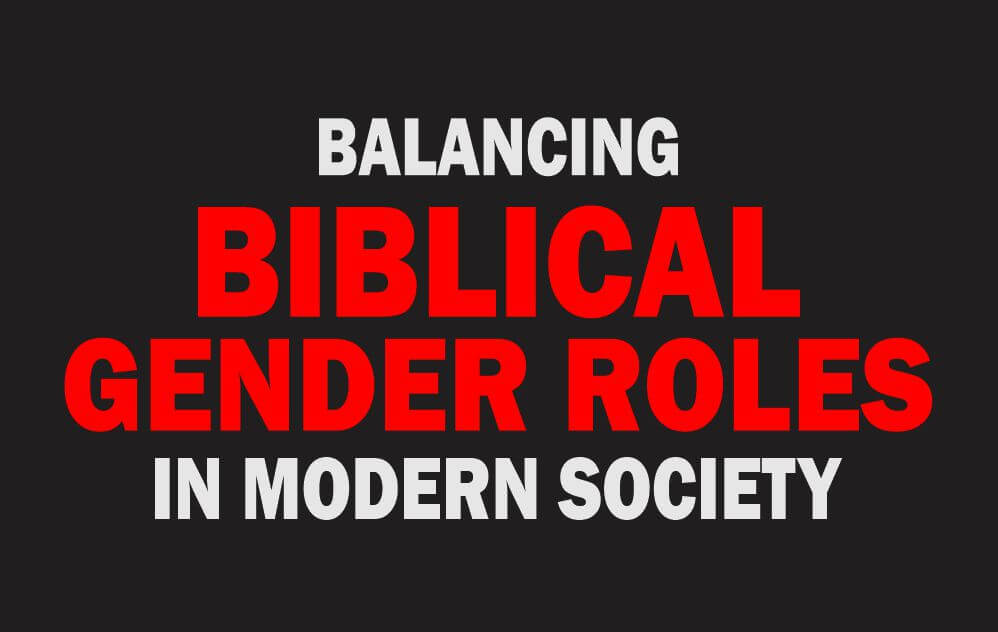Last updated on January 25th, 2024 at 08:34 am
Balancing biblical gender roles in modern society has become a hotly debated issue in recent times as a result of the changes and advancement of humanity.
While traditional biblical teachings have long been at the forefront of shaping cultural attitudes towards gender roles, these views have come under increasing scrutiny in an era of heightened gender equality awareness.
There is no denying that biblical teachings regarding gender roles have provided a framework for societies around the world for centuries.
However, the shifting social norms and changing attitudes towards gender equality today have forced individuals and communities to reassess the relevance of traditional gender roles in modern society.
The challenge is to find a way of balancing the traditional biblical teachings on gender roles with contemporary social norms in a way that upholds the integrity of both, and that addresses the changing needs of modern society.
This article will explore the issue of balancing biblical gender roles in modern society and the challenges associated with maintaining a careful balance between the two competing forces.
Table of Contents
- An Overview of Biblical Gender Roles
- Challenges of Balancing Biblical Gender Roles in Modern Society
- Strategies for Balancing Biblical Gender Roles in Modern Society
- Conclusion
An Overview of Biblical Gender Roles
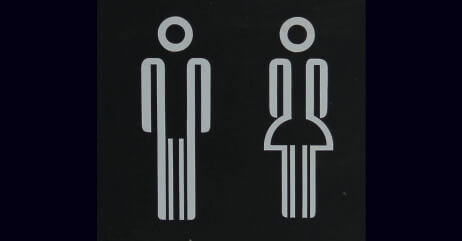
Biblical gender roles refer to the roles and expectations that are outlined in the Bible for men and women.
These roles are based on the belief that God created men and women with distinct characteristics and purposes.
In the Bible, men are often portrayed as leaders, protectors, and providers, while women are portrayed as nurturers, caregivers, and homemakers.
These roles are often associated with specific tasks and responsibilities, such as men being responsible for providing for their families and women being responsible for managing the household.
Related: The Origins Of Gender Stereotypes Through The Ages
Additionally, the Bible emphasizes the importance of marriage and family, with men being the head of the household and women being submissive to their husbands.
While these roles have been interpreted and applied in various ways throughout history, they continue to be a source of guidance and inspiration for many individuals and societies in understanding gender roles and expectations.
Here is a dedicated article for biblical teachings regarding gender roles.
Challenges of Balancing Biblical Gender Roles in Modern Society
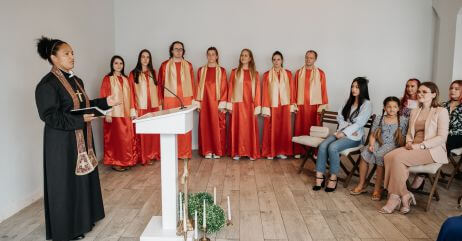
The interpretation and application of biblical gender roles have been a subject of debate and controversy.
Some argue that these roles are outdated and reinforce harmful gender stereotypes, while others believe that they are essential for maintaining traditional family values and societal order.
Despite these differing views, biblical gender roles continue to be a significant influence on many individuals and societies.
It is important to note that the interpretation and application of biblical gender roles can vary depending on cultural and historical contexts.
For example, in some societies, women have been excluded from leadership roles and education based on traditional interpretations of biblical gender roles.
However, in other societies, women have been able to challenge these interpretations and take on leadership roles in various fields.
Changes in Societal Norms and Expectations
Changes in societal norms and expectations are a significant challenge to balancing biblical gender roles in modern society.
As societal norms and expectations have evolved, traditional interpretations of biblical gender roles have been called into question.
For example, women’s increased participation in the workforce and leadership roles challenges the traditional view of women as primarily homemakers and caregivers.
Similarly, the growing acceptance of LGBTQ+ individuals challenges traditional views of gender and sexuality.
These changes in societal norms and expectations can create tension between traditional interpretations of biblical gender roles and modern societal expectations.
Some may argue that these changes are a departure from biblical teachings, while others may argue that they are necessary for promoting gender equality and social justice.
Related: The Impact Of Gender Stereotypes On Individuals
Women’s Increased Participation in The Workforce
Women’s increased participation in the workforce is a significant challenge to balancing biblical gender roles with modern society.
Traditional interpretations of biblical gender roles often emphasize women’s roles as homemakers and caregivers, while men are expected to be the primary providers for their families.
However, as women have gained greater access to education and job opportunities, they have increasingly entered the workforce and taken on leadership roles.
This shift in societal expectations challenges traditional interpretations of biblical gender roles and raises questions about the role of women in the workplace and society.
Some may argue that women’s increased participation in the workforce is a departure from biblical teachings, while others may argue that it is necessary for promoting gender equality and social justice.
Related: The Part Media Plays in Shaping Gender Norms
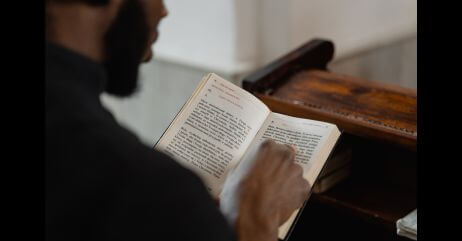
The Impact of Technology and Globalization on Gender Roles
The impact of technology and globalization on gender roles is a significant challenge to balancing biblical gender roles with modern society.
Technological advancements and globalization have transformed the way we live and work, creating new opportunities and challenges for individuals and societies.
However, these changes have also challenged traditional interpretations of biblical gender roles.
For example, technology has enabled more flexible work arrangements, allowing individuals to work from home or on a part-time basis.
Related: Understanding Gender Roles and Expectations in Society
This has created new opportunities for women to balance work and family responsibilities, challenging traditional views of women as primarily homemakers and caregivers.
Similarly, globalization has created new job opportunities in fields that were traditionally dominated by men, such as engineering and technology.
These changes in societal expectations challenge traditional interpretations of biblical gender roles and raise questions about the role of men and women in the workplace and society.
Strategies for Balancing Biblical Gender Roles in Modern Society

Many individuals look to religious texts, such as the Bible, for guidance on how to navigate the complexities of gender roles in modern society.
While biblical teachings offer valuable insights, it is essential to interpret and apply them in a way that respects the equality and dignity of all individuals.
In this section of this article, we will examine possible ways to balance biblical gender roles in modern society.
Below are the strategies to achieve that:
1. Embrace the Principles of Equality
A foundational step in balancing biblical gender roles in modern society is recognizing the inherent equality of men and women.
The Bible teaches that both genders are made in the image of God, endowed with unique gifts and abilities.
Rather than emphasizing superiority or inferiority, biblical teachings emphasize the mutual dependence and partnership between men and women.
By embracing the principles of equality, individuals can foster an environment where both genders have equal opportunities for personal growth, leadership, and contribution to society.
Related: Embracing Femininity To Feel Confident And Beautiful
2. Engage in Open and Honest Dialogue
To bridge the gap between biblical gender roles and modern society, it is crucial to engage in open and honest dialogue.
This dialogue should involve individuals from various backgrounds, including different religious beliefs, cultures, and perspectives.
By fostering an environment where individuals can express their thoughts and concerns, it becomes possible to gain a deeper understanding of the complexities surrounding gender roles.
Respectful dialogue allows for the exploration of diverse interpretations of biblical teachings, encouraging a more inclusive and nuanced understanding of gender roles in the context of modern society.
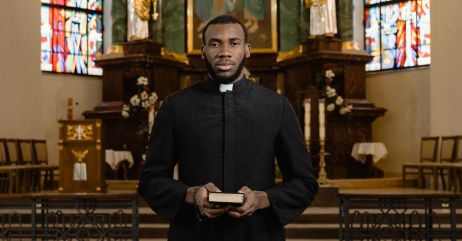
3. Reevaluate Traditional Interpretations
Traditional interpretations of biblical gender roles may not always align with the evolving dynamics of modern society.
It is essential to critically evaluate these interpretations in light of cultural and historical contexts.
By examining the broader themes of love, justice, and compassion within the Bible, individuals can find new ways to interpret gender roles that are more relevant to the present day.
This reevaluation may involve challenging long-held assumptions and cultural biases, allowing for a more inclusive and progressive approach to biblical gender roles.
Related: The Power In Female And Male Submission
4. Promote Shared Decision-Making and Collaboration
Balancing biblical gender roles in modern society necessitates a move towards shared decision-making and collaboration.
This approach recognizes the value of both masculine and feminine perspectives in shaping society.
By embracing a collaborative mindset, individuals can work together to address complex challenges and make informed decisions.
Encouraging men and women to contribute equally in decision-making processes can help overcome gender biases and promote a more inclusive and just society.
5. Emphasize the Power of Education
Education plays a pivotal role in challenging gender stereotypes and promoting balanced biblical gender roles.
It is crucial to provide opportunities for men and women to engage in educational pursuits that expand their knowledge, skills, and perspectives.
Education can help individuals understand the historical context of biblical teachings, empowering them to critically evaluate gender roles and foster more egalitarian relationships within their communities.
By equipping individuals with knowledge and understanding, society can move towards a more balanced and inclusive approach to biblical gender roles.
Conclusion
Balancing biblical gender roles in modern society is a delicate and ongoing process.
It requires a commitment to equality, open dialogue, critical thinking, collaboration, and education.
By embracing the principles of equality, we can acknowledge the inherent worth and dignity of both men and women.
Engaging in open and honest dialogue allows us to understand different perspectives and challenge traditional interpretations.
Reevaluating these interpretations in light of cultural and historical contexts helps us navigate the complexities of gender roles in a changing world.
Promoting shared decision-making and collaboration ensures that both masculine and feminine voices are heard and valued.
Emphasizing education equips individuals with the knowledge and understanding necessary to challenge gender stereotypes and foster more inclusive relationships.
By employing these strategies, we can foster a society where biblical gender roles are understood in a way that respects the equality and diverse needs of individuals in modern society.
References:
- What Is the Truth Behind Biblical Gender Roles?
- Should there be gender roles in family and society?
- Gender Roles in the Church
- Healthy Gender Roles in Marriage
Pyo Merez (PsyD) is a distinguished adolescent and adult psychologist at the forefront of mental health advocacy.
With expertise in cognitive and developmental psychology, focusing on social relationships, cultural contexts, and individual differences, Pyo has dedicated his career to empowering adolescents and adults.
As a sought-after speaker and panelist, Pyo shares invaluable insights on issues affecting young people, contributing to a deeper understanding of mental health and well-being in today's society.
